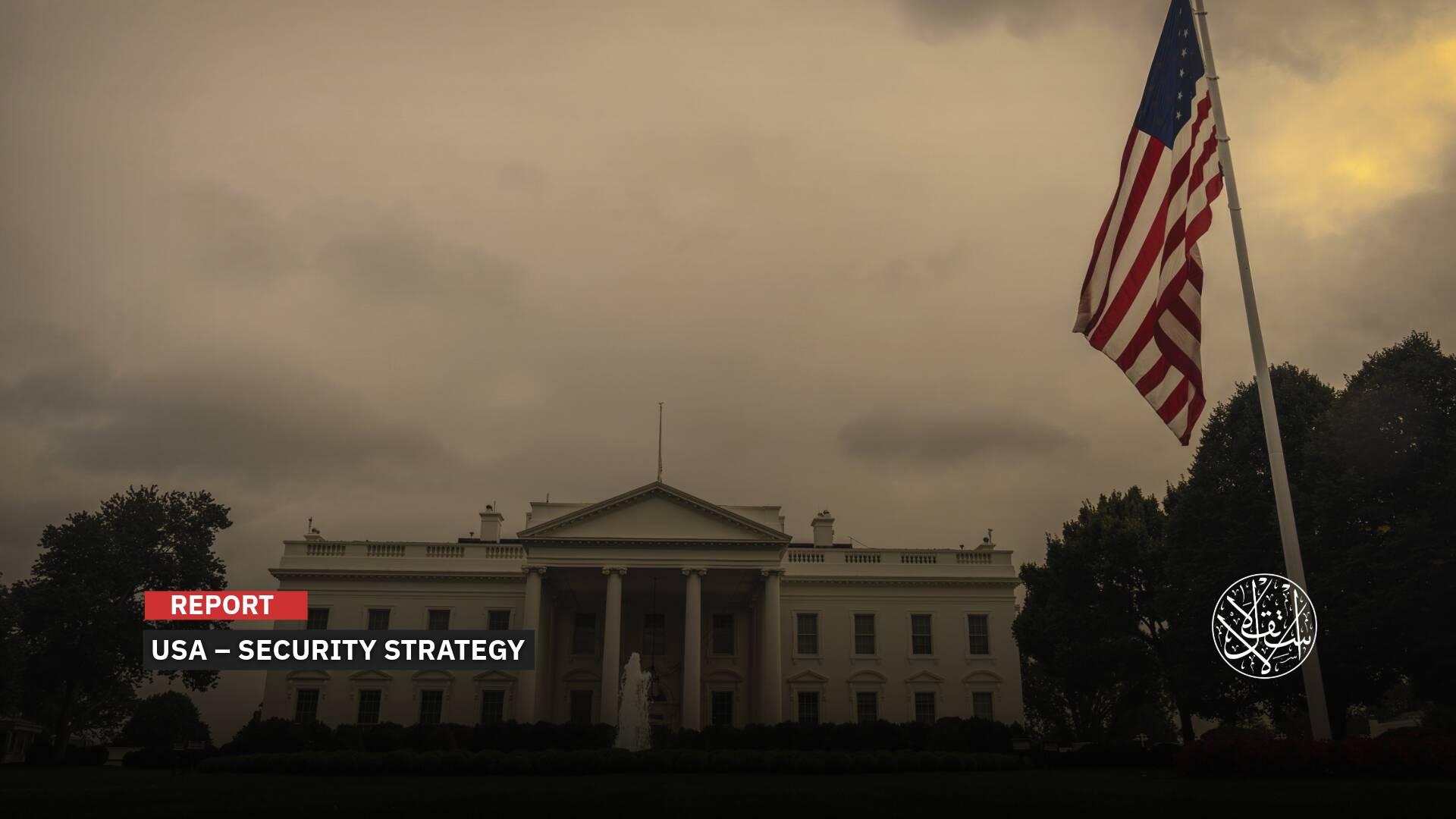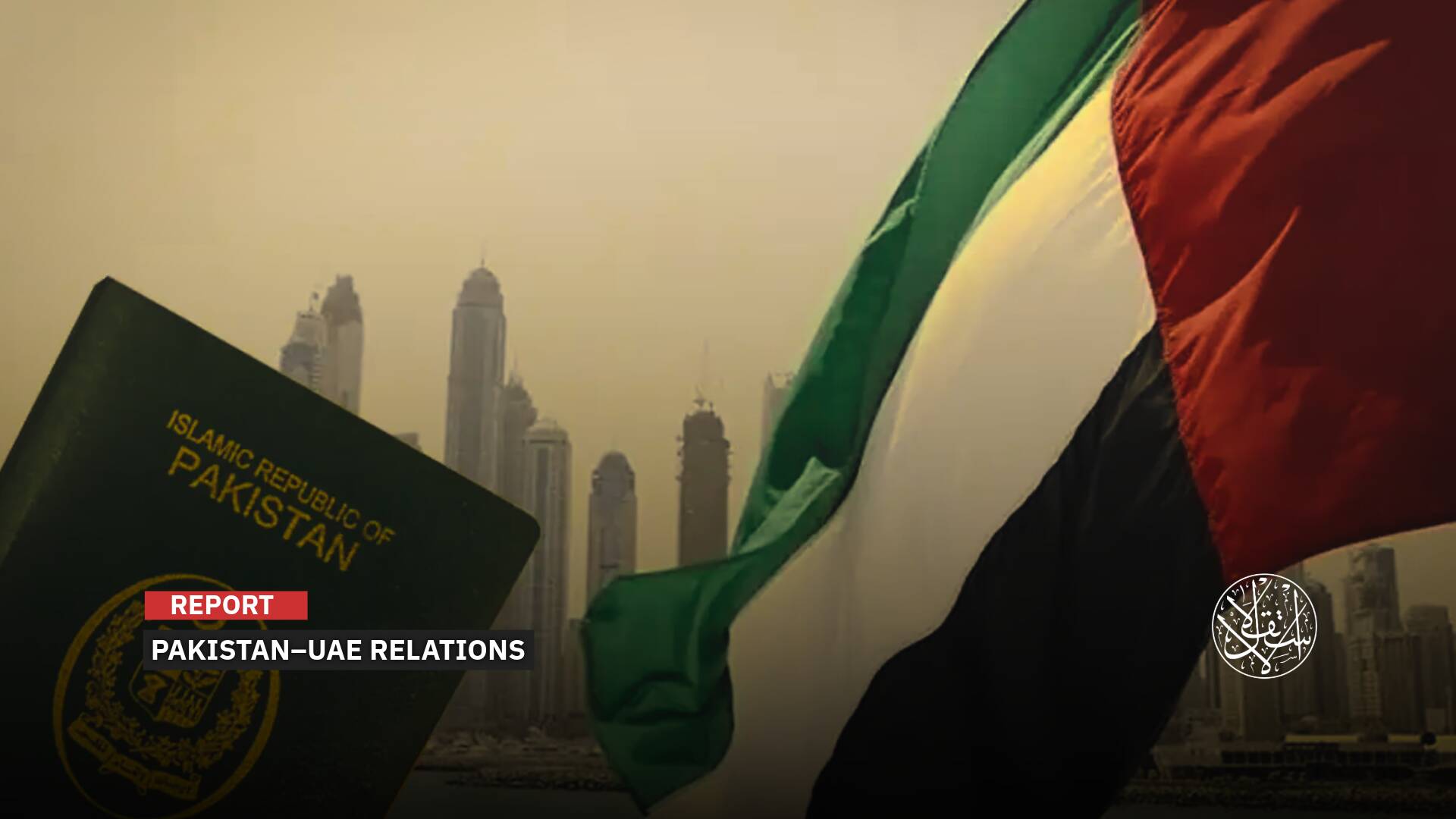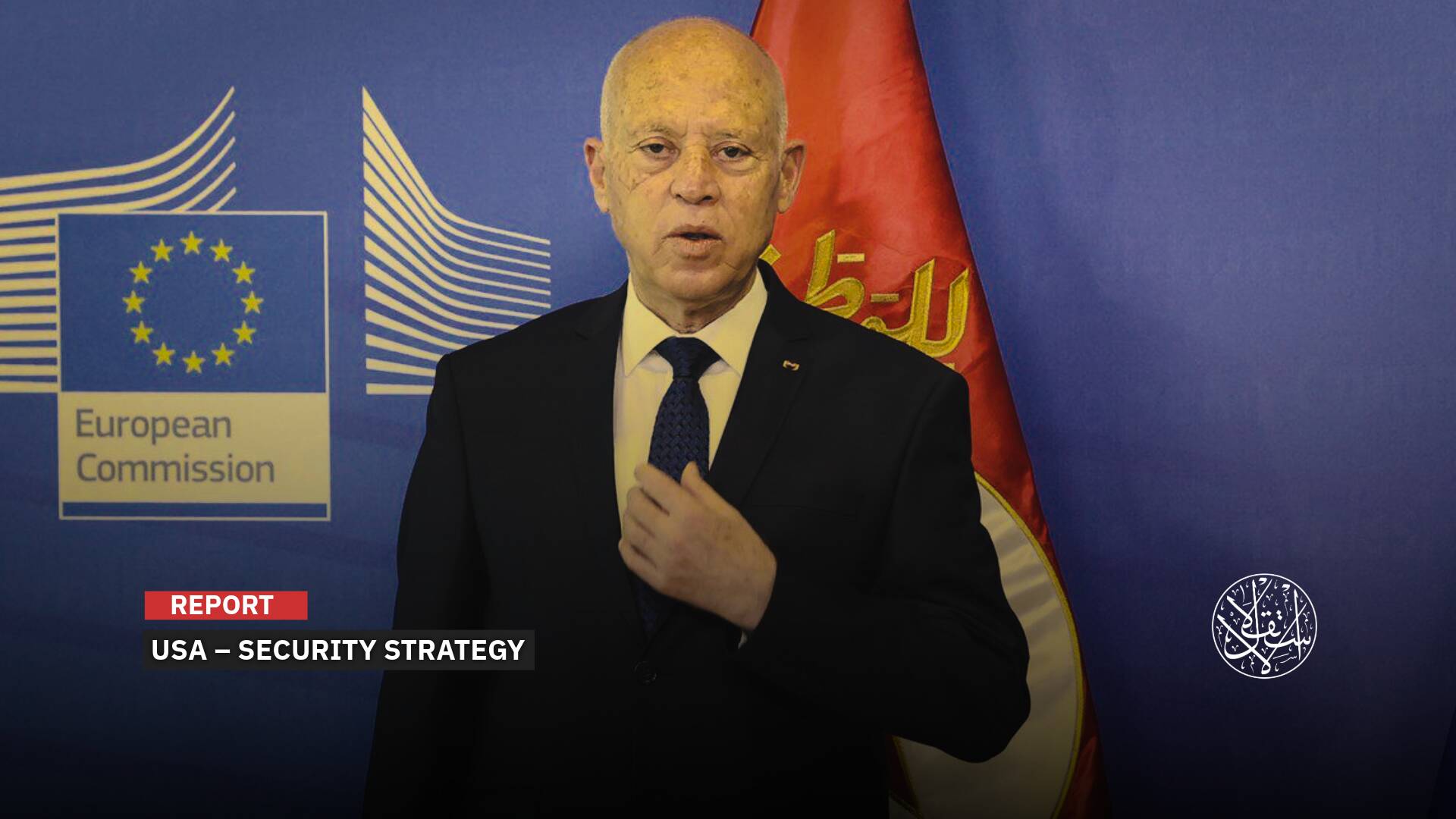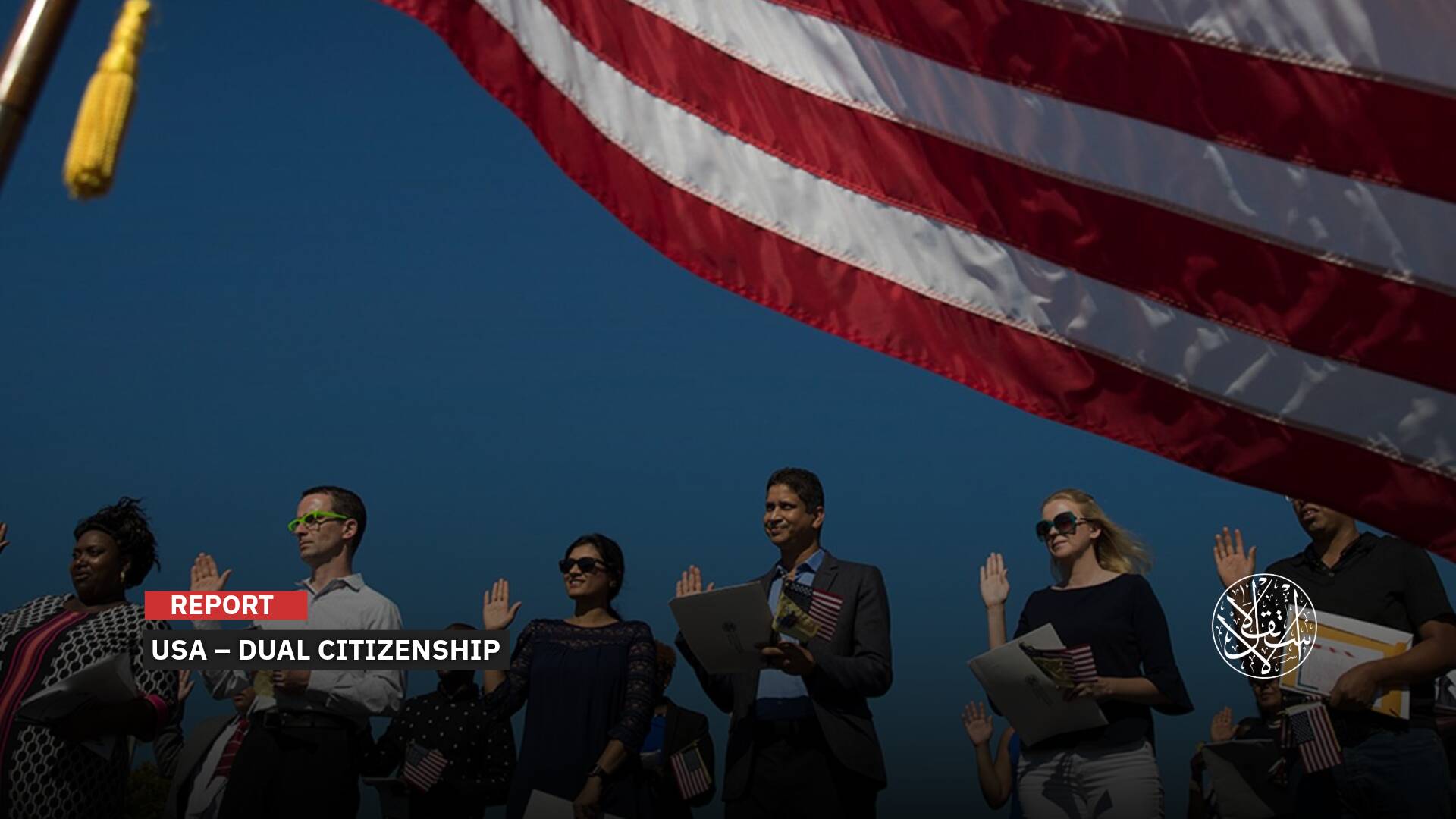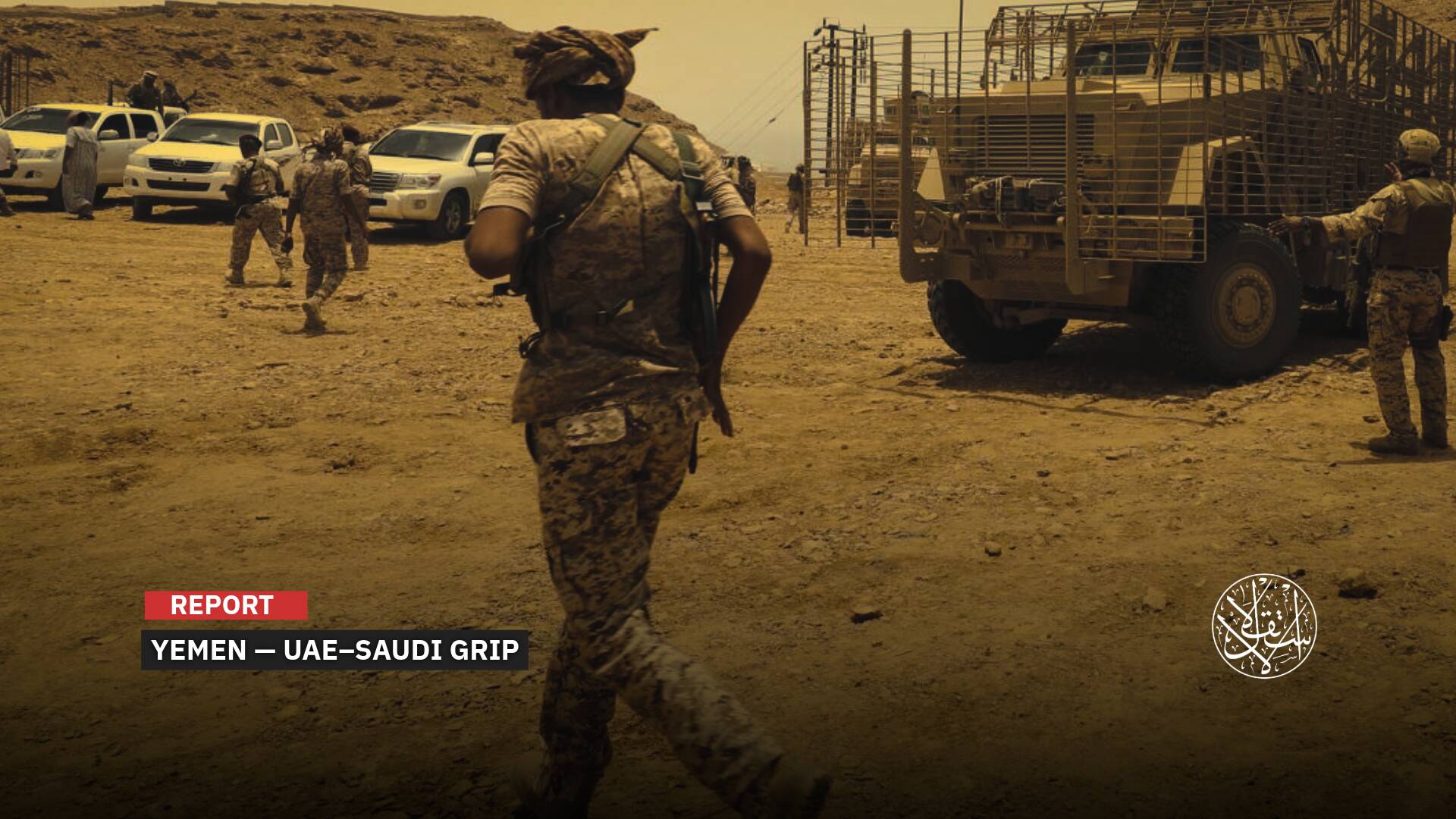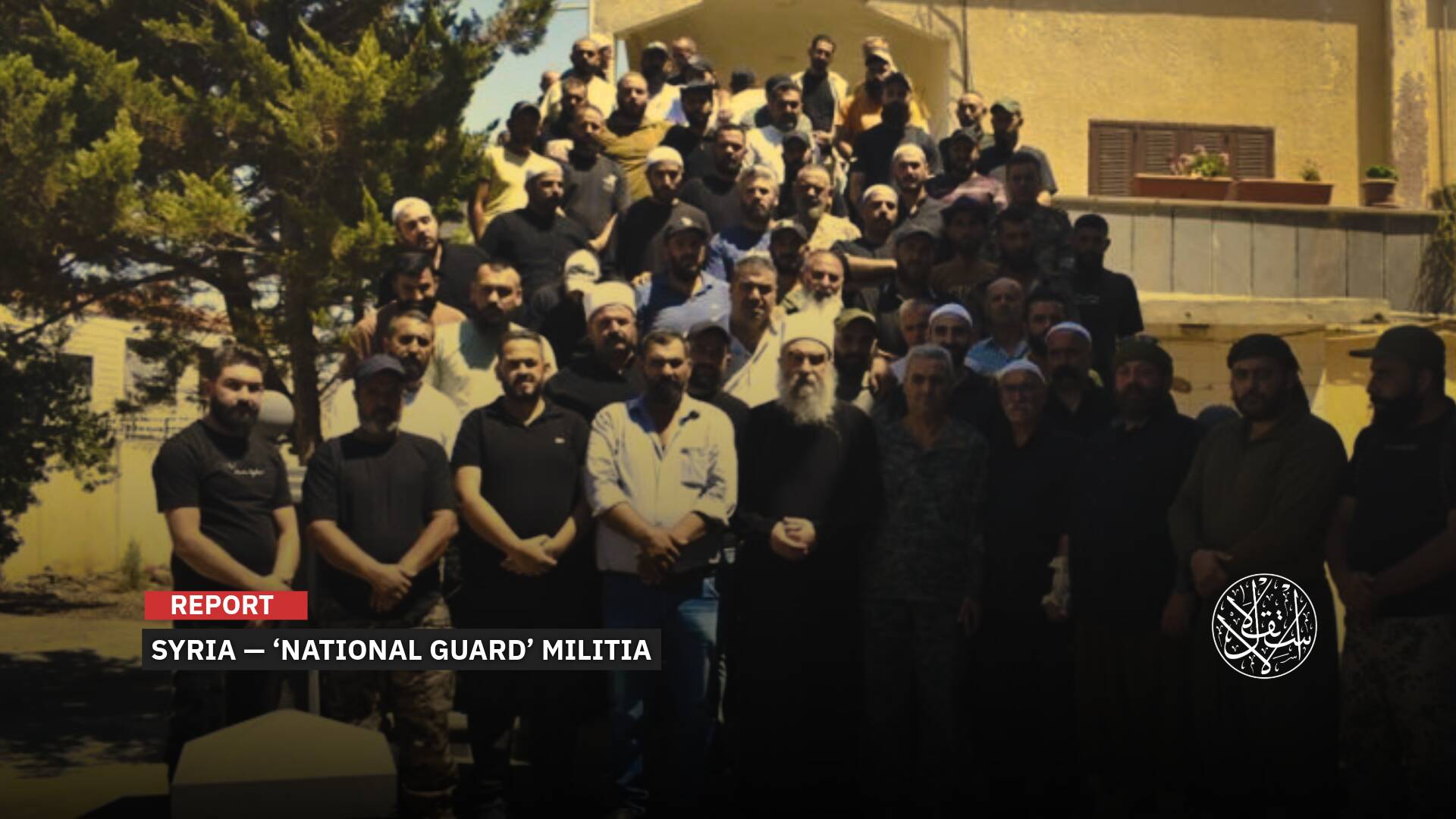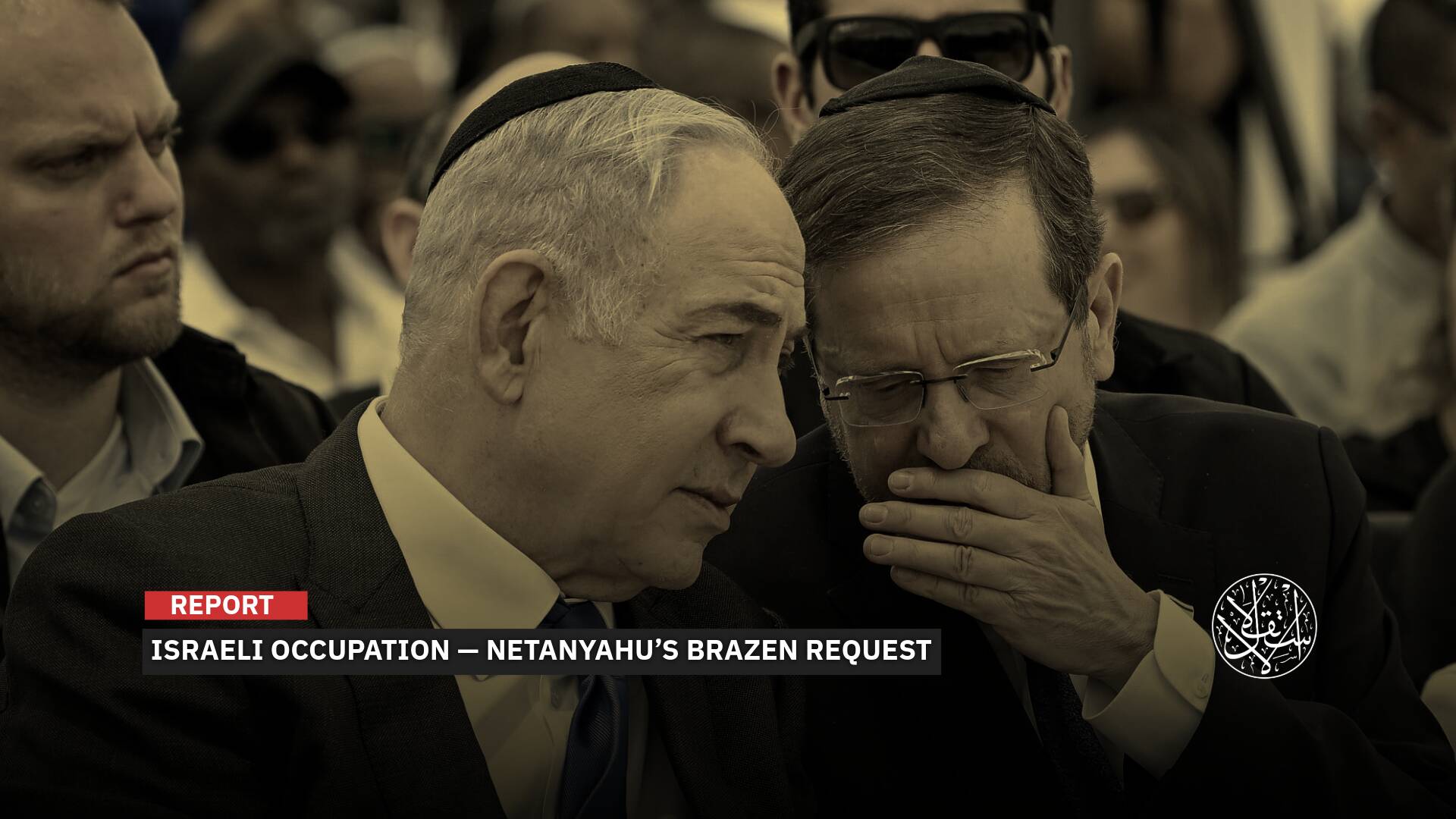Beyond 'Greater Israel': What’s Driving Jordan’s Move to Reinstate Compulsory Military Service?
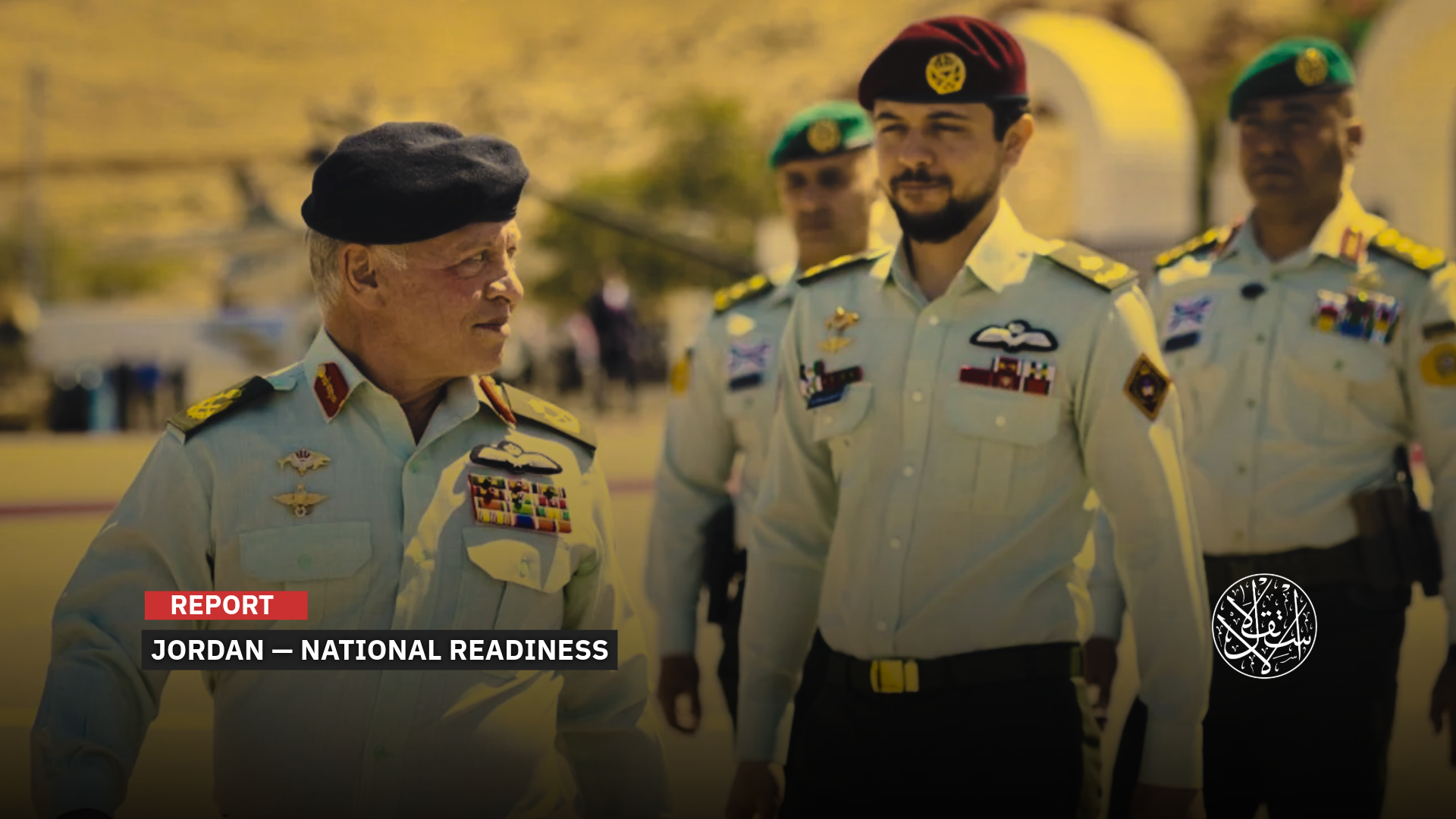
Public outrage in Jordan over the Gaza war since October 7, 2023, is one of the key reasons for reinstating compulsory service.
Crown Prince Hussein of Jordan has announced the imminent revival of compulsory military service, known locally as the “national service program”, a move that has prompted questions about its timing, coming as Israel pushes forward its “Greater Israel” project.
Jordan first introduced mandatory service in 1976, but suspended it in 1991. The policy was partially reinstated in 2020, with the armed forces and security services opting instead for voluntary enlistment to meet their staffing needs. The scheme targets men aged between 18 and 27.
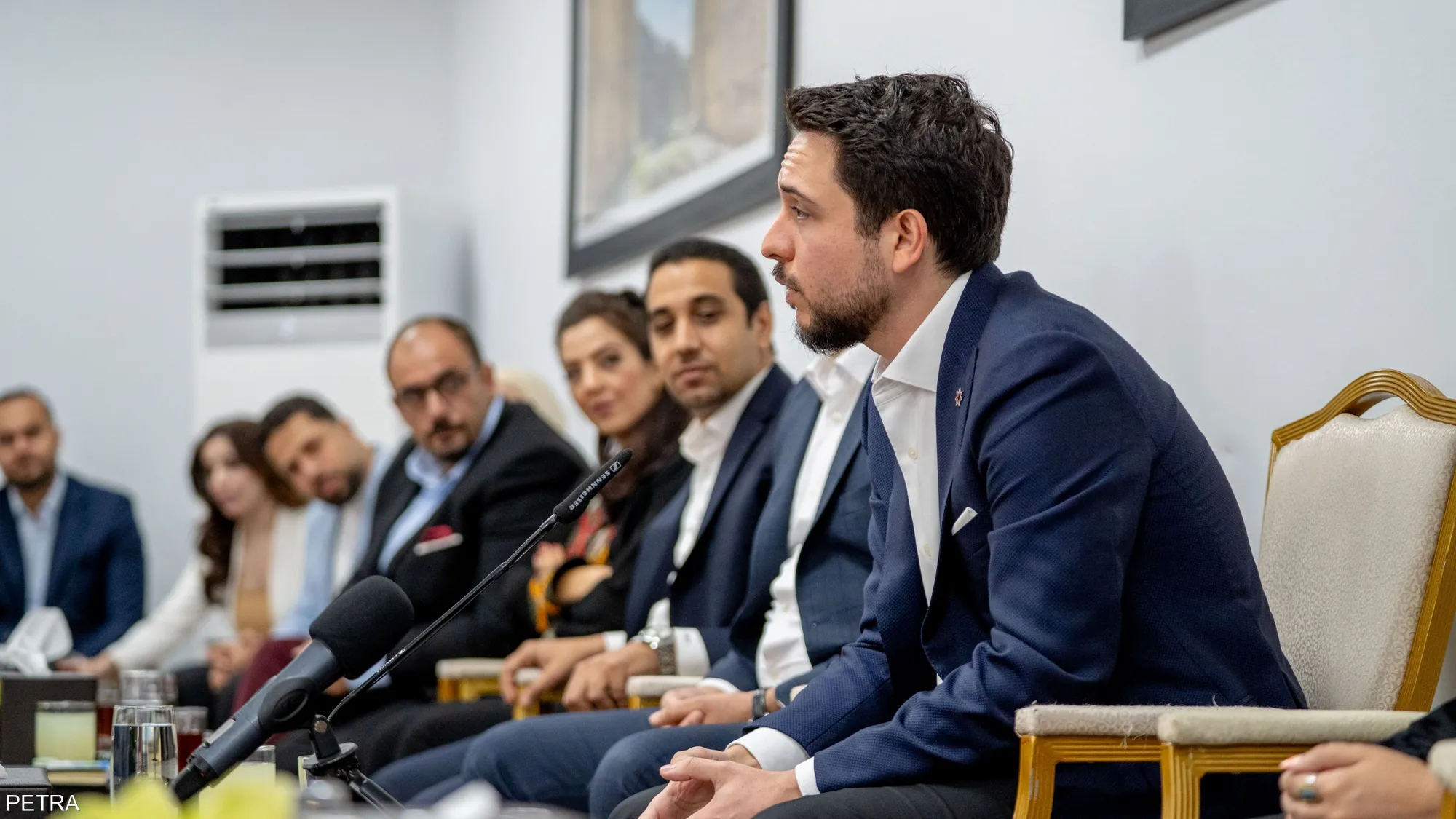
Strengthening Identity
During a meeting with young people from the northern governorate of Irbid on August 17, 2025, Crown Prince Hussein said that “young people must be prepared to serve and defend their country,” adding that “everyone who has taken part in the national service program understands the value of the experience.”
The prince stressed “the importance of the program in strengthening national identity and deepening young people’s connection to their land,” noting that “serving alongside the Jordanian Armed Forces helps build character and instill discipline.”
As for the details of compulsory service, the crown prince said he had instructed the government some time ago to work with its partners to develop the program, “which will go through a series of measures within a clear timetable before its details are announced.”
In his first public remarks, Jordan’s prime minister, Jafar Hassan, said that “the government will urgently send a draft amendment to the national service and reserve service law to parliament once the next session convenes, so that it can take effect at the beginning of next year (2026),” according to the state-run broadcaster al-Mamlaka.
Government spokesman Mohammad al-Momani said the national service program would follow two main tracks, the first military, which will make up the bulk of the scheme, and the second theoretical, which will include lectures on citizenship, national identity, economic and financial literacy, as well as an introduction to the realities of the labor market.
Al-Momani explained at a press conference that the program will begin with the training of 6,000 young Jordanian men born in 2007, who will have turned 18 by January 1, 2026.
They will be divided into three cohorts of 2,000 each, selected electronically through a neutral statistical draw.
He noted that the number of participants would quickly be raised to 10,000, with a gradual plan to eventually include most eligible groups over the coming years.
The spokesman stressed that “under the law, anyone who fails to report for service faces a prison sentence ranging from three months to one year.”
He added that this penalty cannot be replaced with alternative sentences, and underlined that “there will be absolutely no exemptions for those required to serve.”
The armed forces’ spokesperson, Brigadier General Mustafa al-Hiyari, told the same press conference that “exemptions are limited to those who are only children of their parents, or those who are medically unfit.”
“As for deferrals, they apply to Jordanians living abroad, students enrolled in annual study systems, or those attending public and private schools, provided they complete their service at a later stage,” al-Hiyari continued.
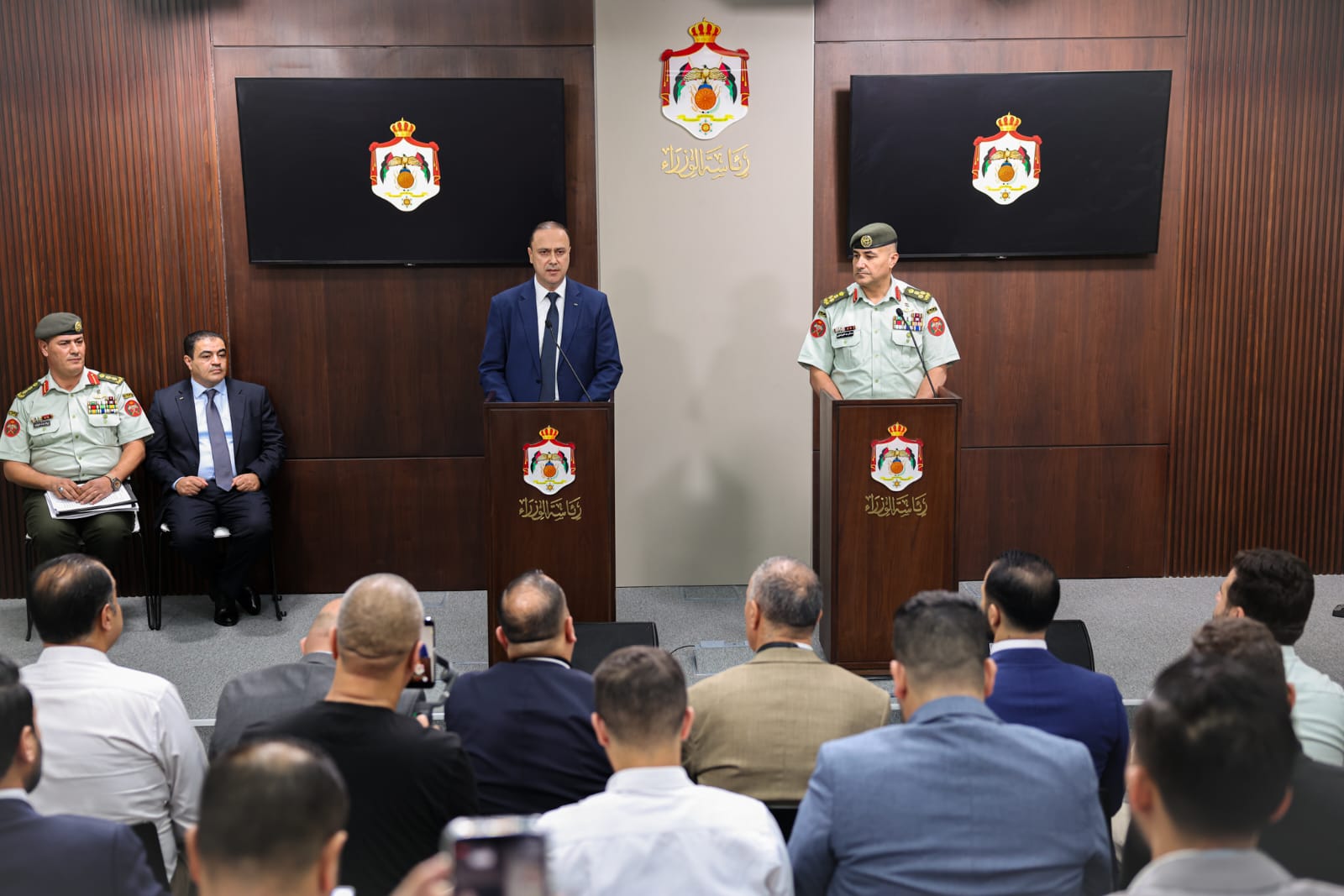
Israeli Threat
The Jordanian move came at the same time as comments by the Israeli prime minister, Benjamin Netanyahu, about the establishment of what he called “Greater Israel,” drawing widespread condemnation from Arab states.
On August 13, Netanyahu told the Israeli channel i24 that he was “deeply committed to the vision of Greater Israel,” responding to a question on whether he saw himself as being “on a mission on behalf of the Jewish people.”
According to the Israeli vision, “Greater Israel” would encompass the occupied Palestinian territories, as well as Jordan, Lebanon, and parts of Syria, Egypt, Iraq, Saudi Arabia, and Kuwait.
Israeli political and religious leaders, along with institutions such as the Torah and Land Institute, have long promoted the idea that the “historical borders of Israel” stretch from the Euphrates to the Nile.
Jordanian writer and political analyst Dr. Munther al-Hawarat linked the two developments, saying that “the idea of compulsory service has always been on the table, but its approval at this moment came after Netanyahu’s remarks about Greater Israel.”
Speaking to Al-Estiklal, al-Hawarat added, “It is clear that Jordan senses a major threat from what Netanyahu and the far-right government in Israel are planning, namely to dominate the region, impose their conditions and agendas, and pursue expansion as an imperial power. This is what accelerated the decision on compulsory service.”
“The decision has been under debate in Jordan for a long time, not only for security considerations, but also as a way of shaping and strengthening national identity within the Jordanian Armed Forces. This institution is the only space capable of bringing together all segments of society within the framework of the Jordanian nation.”
“There are real Jordanian concerns about Israel’s intentions toward Jordan in particular, especially after the escalation of rhetoric by extremist Israeli politicians and their display of maps of their so-called entity, and finally Netanyahu’s declaration of the Greater Israel idea, which sounded alarm bells in the country,” al-Hawarat noted.
“The Israeli discourse was dealt with seriously and swiftly, with the understanding that Jordan is ready to reinsert itself into the context of confrontation rather than peace, and is prepared to create all the conditions necessary to resist this vision and Israel’s expansionist ambitions in the region.”
According to al-Hawarat, “There is a close connection between Netanyahu’s statements and Jordan’s decision to reinstate compulsory military service.”
Responding to a question about Netanyahu’s comments on “Greater Israel,” Jordanian government spokesman Mohammad al-Momani said, “These are reckless statements that reflect the internal crisis facing the Israeli prime minister and his far-right partners in the ruling coalition.”
“The behavior of the far right in Israel, in undermining the prospects of a two-state solution, directly threatens the interests of states and regional stability.”
“Jordan will continue building its state and institutions on all fronts, while raising its readiness to deal with every challenge and risk,” al-Momani added.

Other Goals
Al-Hawarat also argued that “there are other objectives behind the decision to reinstate compulsory service, linked to strengthening Jordanian national identity after many weaknesses were observed in recent years.”
“The state sees the need for all segments of society to be engaged within a single institution, regardless of their origins or social and class background. This, in turn, deepens their belief in national identity and the need to defend it, while reinforcing their bond with the Jordanian state,” al-Hawarat said.
Jordanian writer Issam Qadamani said that “the most important goal of reviving national service lies in reinforcing young people’s attachment to their country, instilling a national culture, and bolstering social values rooted in Arab and Islamic traditions while framed by modernity and new scientific and technological developments.”
Qadamani added, in a column published by the Jordanian daily al-Rai on August 17, that “talk of reinstating national service predates the recent events and developments in the region.”
“It was necessary to strengthen national principles in the face of complex challenges, including economic ones,” noting that the return of compulsory service enjoys broad national consensus.
“National service has succeeded in several areas, such as regulating the supply of labor to the market, instilling discipline in young people, fostering morale and patriotism, and other qualities that can only be achieved when service is mandatory,” Qadamani noted.
In his view, “by contrast, none of the voluntary versions achieved the desired training or success, precisely because they were not compulsory.” The writer added that “the army as an institution continues to provide the labor market with highly skilled and disciplined professionals.”
While most analyses and commentaries by Jordanian writers and analysts have interpreted the reinstatement of compulsory service as preparation to confront the “Greater Israel” project, as well as a measure to strengthen national identity, others see an additional dimension behind the authorities’ decision.
Observers have suggested that public unrest in Jordan over the ongoing war in Gaza since October 7, 2023, and the involvement of some young Jordanians in cross-border attacks against the occupation, may have contributed to the government’s recent move.
They believe the authorities are seeking to prevent a repeat of such attacks by engaging young people and integrating them into the military institution, particularly in the wake of Netanyahu’s comments on “Greater Israel.”


